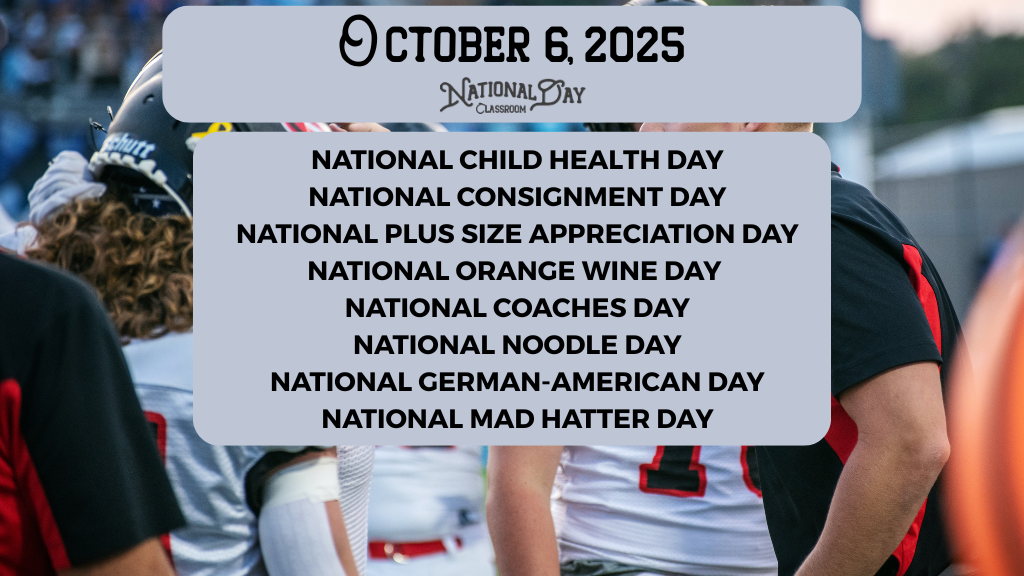
Date: October 6
Theme: Celebrating Over 300 Years of German-American Heritage and Contributions.
I. Introduction: Why October 6th? (5 minutes)
- The Proclamation: National German-American Day is celebrated every year on October 6th. It was officially proclaimed in 1983 by President Ronald Reagan to commemorate the 300th anniversary of German settlement in America. Congress later enacted it into law.
- The Founding Date: The date marks a crucial moment: on October 6, 1683, 13 German Quaker and Mennonite families from Krefeld, near the Rhine, landed in Philadelphia. They went on to establish Germantown, Pennsylvania (now part of Philadelphia), the first German settlement in the original 13 colonies.
II. Waves of Immigration (10 minutes)
German-Americans are the largest ancestral group in the United States, with an estimated 40-50 million people claiming German heritage. This population grew through several distinct waves:
- The Colonial Era (1683 – Mid-1700s): Seeking religious freedom and economic opportunity, tens of thousands of Germans—many from the Palatinate region—settled in Pennsylvania, establishing the “Pennsylvania Dutch” (a misnomer for Deutsch, or German) communities, famous for groups like the Amish and Mennonites.
- The Mid-1800s (Mass Immigration): Driven by crop failures, economic hardship, and a lack of political freedom, a massive wave of Germans arrived. These immigrants spread westward to states like Ohio, Illinois, Wisconsin, Missouri, and Texas, often becoming successful farmers and skilled craftsmen.
- The 20th Century (Post-Wars and Intellectuals): While the World Wars temporarily diminished public celebration of German heritage, a new wave of immigrants and refugees, particularly during the Nazi era, included prominent figures like scientists and intellectuals, most famously Albert Einstein.
III. German-American Contributions (15 minutes)
German immigrants and their descendants have influenced nearly every aspect of American life:
- Culture and Traditions: Many beloved American traditions originated or were popularized by German-Americans:
- The Christmas Tree: Introduced in the U.S. by German settlers.
- The Kindergarten: The first kindergarten was established in the U.S. by German-American educator Margarethe Meyer Schurz.
- Food: German immigrants introduced or popularized staples like hot dogs, hamburgers, pretzels, lager beer, and sauerkraut.
- Military and Politics:
- American Revolution: Baron von Steuben, a Prussian military officer, was instrumental in training the Continental Army at Valley Forge, turning a ragtag militia into an effective fighting force.
- Civil War: Thousands of German-Americans fought for the Union, and many were active in the abolitionist movement.
- Presidents: Seven U.S. Presidents have claimed German ancestry, including Dwight D. Eisenhower.
- Science, Industry, and Innovation:
- Science: Thinkers like Albert Einstein (physicist) and Wernher von Braun (aerospace engineer) profoundly shaped American science and technology.
- Industry: German immigrants like John Jacob Astor (fur trade/real estate) and the founders of companies like Steinway & Sons (pianos) and Levi Strauss (jeans) built American business empires.
IV. The Impact of World Wars (5 minutes)
- The two World Wars brought periods of extreme difficulty for the German-American community.
- Anti-German sentiment led to the suppression of German language newspapers, changes to German street and town names, and, for some, suspicion and discrimination.
- This pressure caused many German-Americans to consciously downplay or abandon their heritage, leading to the temporary decline of German-American Day celebrations until its revival in 1983.
V. Conclusion: A Rich Heritage (5 minutes)
- Today, German-Americans are thoroughly integrated into the American “melting pot.”
- National German-American Day is a time to honor this legacy, recognize the hard work and resilience of millions of immigrants, and celebrate the cultural bonds between the two nations.
Optional Activity/Discussion Starter: Look up an American figure with German ancestry and discuss their contribution. (Examples: John Steinbeck, Thomas Nast, Babe Ruth, John D. Rockefeller, Walt Disney, Sandra Bullock, Leonardo DiCaprio).